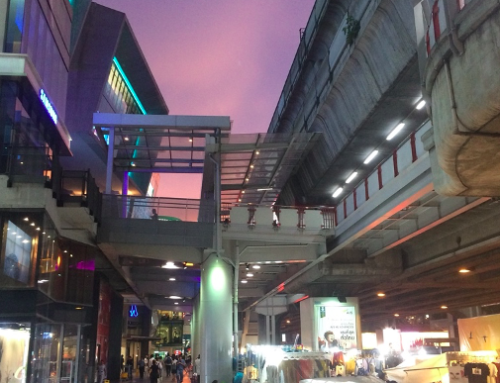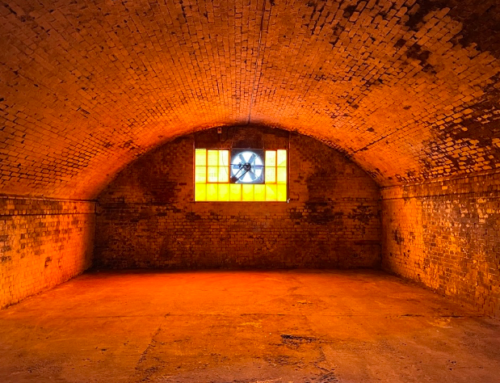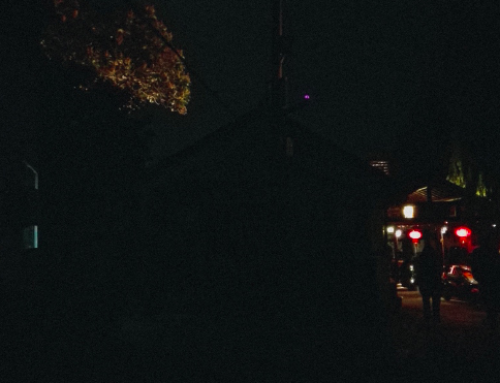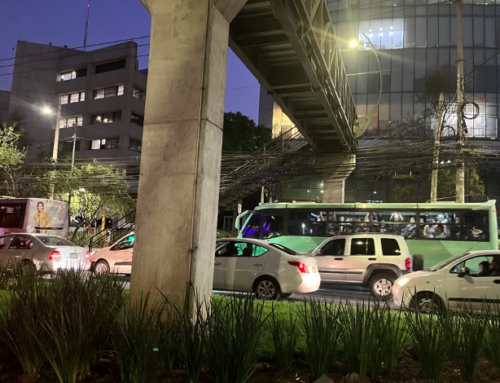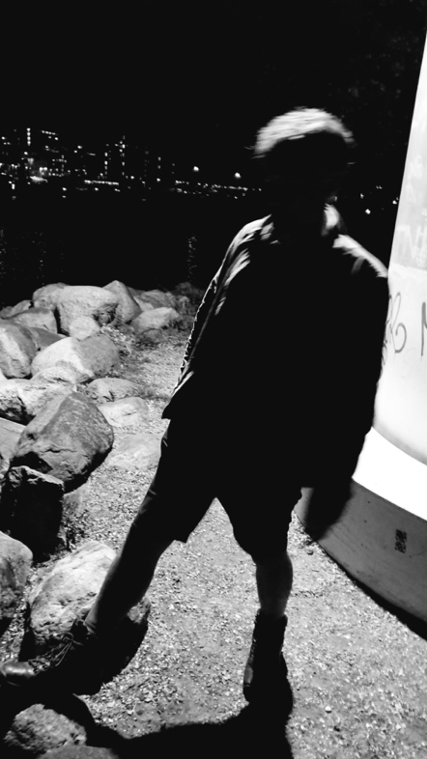
Friend near little light house. Aarhus, Denmark. Photo by author.
At the end of the path stood an old, abandoned light house. It was short and dilapidated, and it was clear that from a functional standpoint, the structure had been obsolete for decades. Aarhus, Denmark and, frankly, the world had moved on. The rapid advance of GPS turned such things into mere landmarks. Remainders. And, yet, other uses were evident in the etchings and tags of teenage romance, xenophobic slander, and cryptic, underground signatures. Hardly heroic, the lighthouse reflected what was put into it. A weathered mirror of after-hours gatherings.
Malik and I often met there after work to let off a little steam. We would make up names of organizations and teams from the randomly carved acronyms. Silly names like Viking Bakeries Anonymous or Vitriolic Bankers Association. We would try to outdo each other, eventually tire, and sit on the surrounding smooth rocks as whatever brightness generated by a tired sun drained away, leaving stains of effort and resignation. The Danish sky could be so unforgiving during the winter months. Dusk brought us a good kind of tired: relief and an emerging intimacy.
Skirting a jetty here and there, kayak enthusiasts skimmed across the water’s calm surface. Our eyes followed the erect torsos and our perception toggled back and forth between them and the contours of a nearby island in the horizon.
We looked from right to left, from the harbor and a brimming Danish affluence to the misleading, open sea. Both were in front of us. Both were gradually losing distinction with dusk and becoming a general background of sounds and smells. The wind picked up and we naturally turned toward each other.
The name “lighthouse” had been co-opted to name the new, ultra-modern residential apartment complex, which had caused repeated clamor on the political left for its brash disregard of basic ethical codes of urban sustainability. Buildings should adhere to an agreed upon limit of verticality, no more than 6 stories in height, protestors said. The law was clear, they insisted. Civilized. Nevertheless, architects, urban planners, and a cadre of politicians pushed through legislation and grinned as they emphasized the elevated dimensions of 142 meters. The lighthouse, not our lighthouse, dwarfed everything. We all felt small. It was, in fact, part of a fin de siècle masterplan, one of those omnipotent buzzwords of urban development that make investors giddy and residents simultaneously proud and anxious.
In the summers Malik would often hang out with friends on the Ø, a fabricated island of prime real estate, where the gigantic lighthouse was located, just across the harbor from our diminutive lighthouse. The Aarhus city government had facilitated the development made popular by cities like Amsterdam by filling harbor waters with land and top-notch technologies. Campaigns boasted mixed-income to raise popular support. Over time, however, such socialist urban planning faded like sunlight and egalitarianism was outsourced like the neon lights of nocturnal public spaces. Residents soon complained about the noise coming from the island’s central parking lots, as if only Muslim youth were raucous. Noise ordinances act as a cover for racism. Darkness as a misdirection to justify xenophobic fear. Summers are inherently loud in Aarhus as the day stretches out and pours energy into the city. Social sustenance.

Light across the harbor. Aarhus, Denmark. Photo by author.
I remained close to the little lighthouse, lightly comforted by the etchings that had grown in number during the long summer afternoons. It was easier and more inviting to leave one’s mark when winds were pleasant breezes rather than barbed whips. The noises of family chatter, early evening sparring, reminded me of Malik. I looked down at my chipped, painted nails. The sparkle was gone. Shoddy AF. I felt the seasons and the world changing, but I had become just as obsolete as the lighthouse.
I sat next to the lighthouse and found myself returning to that winter dusk. Every time the gray skies shaded darker, we turned our attention to the etchings. Even at midnight there always was a glint of light, a reflection of the moon or catching ray from the nearby red warning light. It made the etchings forever legible, if only barely. Forever interpretable. Malleable. Ours. Malik and I leaned on each other, taking in the moment, feeling the touch of real care and unspoken desires.
Derek Pardue is an Associate Professor in the Global Studies Department at Aarhus University. His recent ethnographic fiction includes “In the Gloam” and Sobrevivendo no Inferno.
Cite As: Pardue, Derek. 2023 “Etchings” In “Flash Ethnography: Dusk” Aaron Hames and Derek Pardue, eds., American Ethnologist website, June 20 2023 https://americanethnologist.org/online-content/collections/dusk-collection/etchings/
